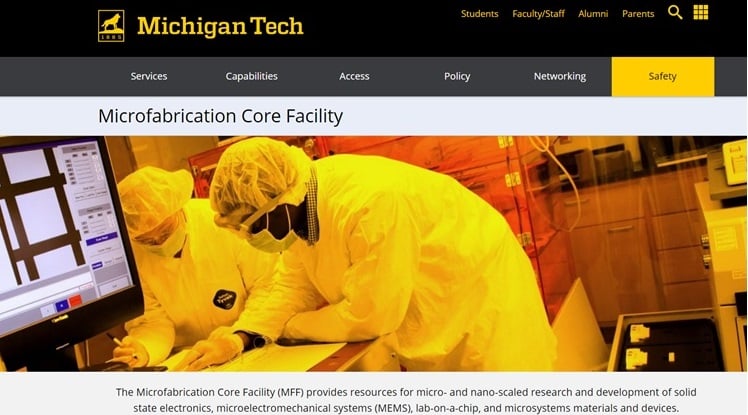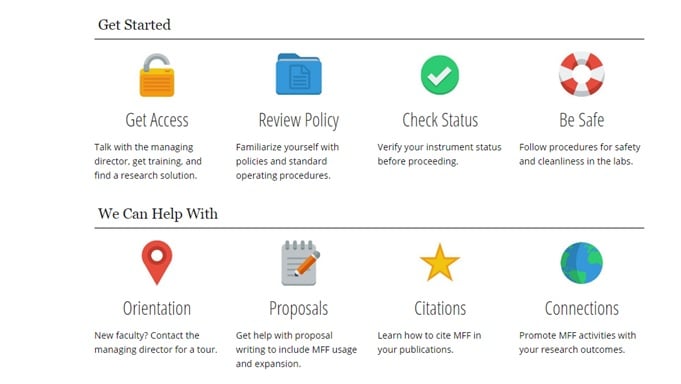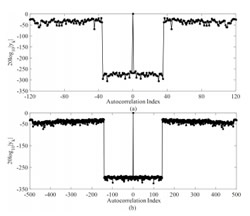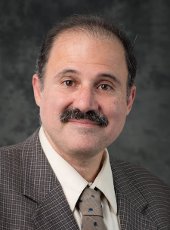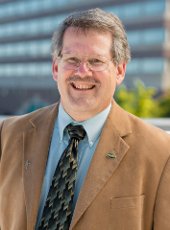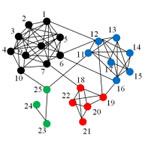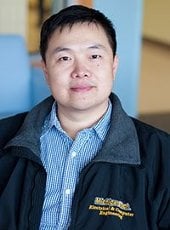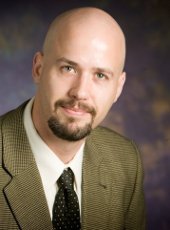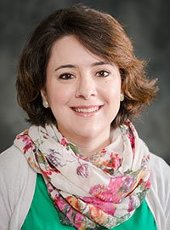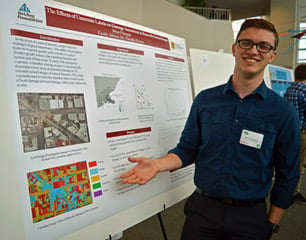 Brian Flanagan, a computer engineering major, was among the winners of the 2017 Undergraduate Research Symposium held on Friday, March 17 in the lobby of the Rozsa Center.
Brian Flanagan, a computer engineering major, was among the winners of the 2017 Undergraduate Research Symposium held on Friday, March 17 in the lobby of the Rozsa Center.
A record number of abstracts and posters were submitted this year – an astonishing 71 – representing every school or college on campus. Flanagan was awarded Second Place for his research on “The Effects of Uncertain Labels on Damage Assessment in Remotely Sensed Images”. Faculty advisor was Tim Havens, ECE and CS William and Gloria Jackson Associate Professor.
The annual Symposium is conducted by the Pavlis Honors College and highlights the amazing cutting-edge research being conducted on Michigan Tech’s campus by some of our best and brightest undergraduate students.
